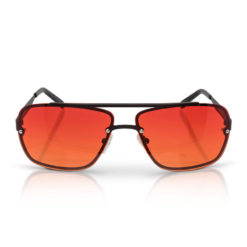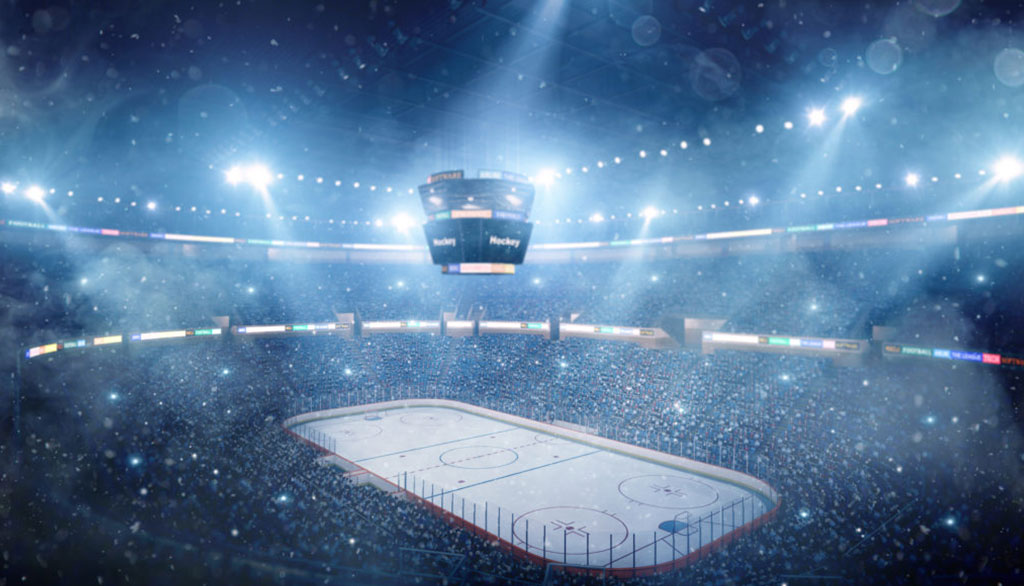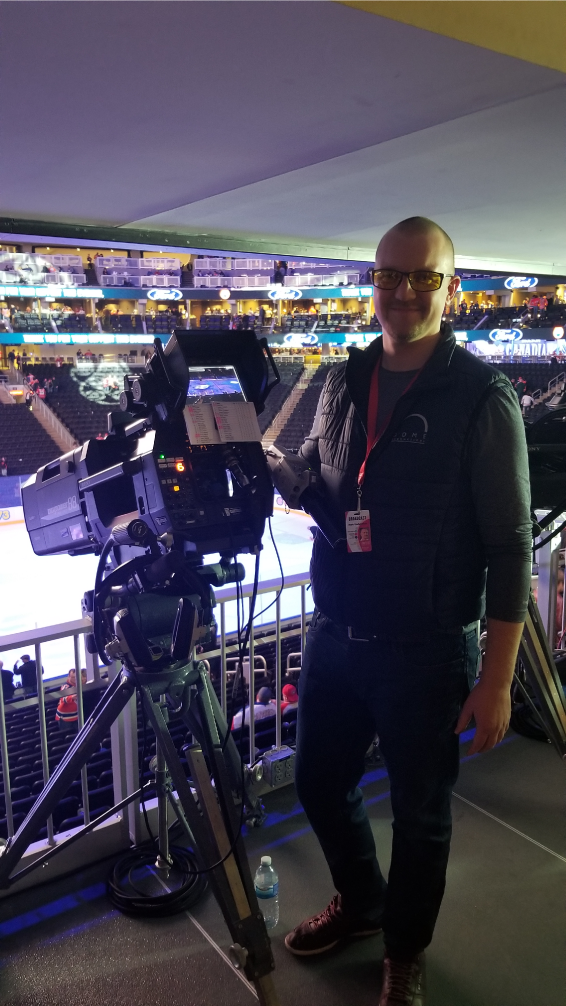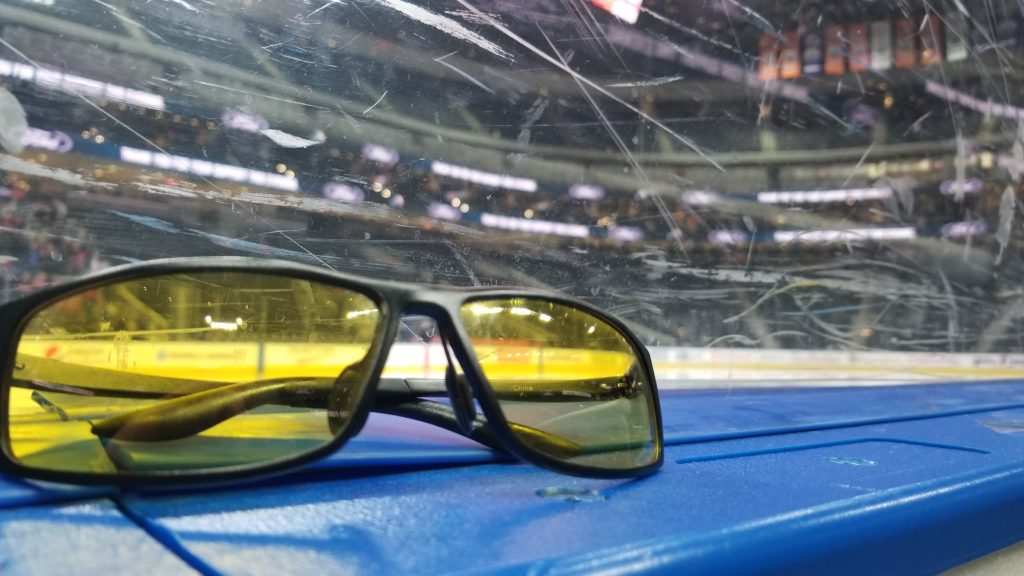-
×
 Twilights Sunset Aviator
1 × $149.99
Twilights Sunset Aviator
1 × $149.99
Blue Light Blocking Glasses, Q&A's, Sleep
Q&A: How To Protect Your Eyes When You’re Surrounded By Lights

Q&A: How To Protect Your Eyes When You’re Surrounded By Lights
Are you constantly looking at your phone or computer screen? Do you have a hard time focusing during the day or sleeping at night? Take note of the lighting around you throughout the day (and evening) — it may be impacting your mind and body more than you think.
As humans have evolved, we’ve adopted an on-the-go lifestyle that encourages us to stay “on” all of the time. That means waking up in the morning to check our emails, racing to work earlier where we sit under artificial lighting for 8-10 hours at a time, and keeping up with our social lives via various apps and emails. And be honest, when you get home after a long day of work, do you opt to chill out on your computer or binge watch tv? If yes, think about how much time your eyes are exposed to artificial lighting throughout your entire day.
Overexposure to artificial blue light can seriously throw off your body’s internal clock — making it difficult to drift off into a deep sleep at night, and hard to focus on tasks during the daytime. This becomes a vicious cycle that can lead to numerous health concerns, including but not limited to: weight gain, mood disorders, heart disease, insomnia, and even cancer. The key to stopping this cycle and taking more control over your body is to also take more control over the light in your environment.
We recently sat down to chat with Mark Stefanishyn, a biohacker, television broadcaster, and an early adopter of blue light blocking technology. His experience with constantly working under harsh lighting offers a unique perspective about preserving the mind and body by preventing overexposure to the junk light in his home and work space. Check out the Q&A below to see how Mark protects his eyes, even while filming under bright lights at the Edmonton Oilers hockey games!
TrueDark®: Please describe your profession, what’s a day in your shoes look like? And how often are you typically surrounded by junk light?
Mark: I live in Edmonton, Alberta, Canada and I do a mix of live TV sports broadcasting and video content for social media. If I’m not doing a shoot outside, I’m inside surrounded by bright white LED lights for video production or working on a computer. Edmonton is pretty far north and we can have winter for 7-8 months out of the year, so I’ve never really had much of a real relationship with the sun and outdoors.
A day in my shoes? I usually start off the day wishing I had woken up earlier. Maybe some kettlebells in the morning before I head to work. I carpool to the [hockey] arena, set up my camera, and if it all works I’ll have a bit of “free” time. The TV industry has a lot of sitting around time (not as bad as a movie set though) so I keep myself busy doing some other editing on my laptop. After that we have a meeting with the director to learn what our camera assignments are. Usually he’ll run through the most common parts of the game (goal, penalty, good goalie save, etc.) and tell each of us what we are supposed to do in that situation. Then we have lunch and sit around for a bit more until the game starts (between 7-8pm). We’re usually packing up the cameras shortly after 10pm and then we’re out of the arena by 11ish.

It’s a rough environment for the body but it’s kind of “invisible”. It’s obviously not true hard work like construction or something, but it takes its toll in it’s own way. I’m under fluorescent lights constantly. Then once it’s game time when we are bathing in an ultra fancy light show, a blaring sound system that I would never enter into without hearing protection, and the bright LED lights that are pointed on the ice. There’s obviously no opportunity for earth grounding either. So by the time the day is done, your body really has no indication that it’s close to bedtime – it’s just absolutely wired from the mix of the environment and then the mental focus it requires to find #15 on the blue team’s bench in no slower than 5 seconds.
TrueDark®: How and when did you start shooting for the Edmonton Oilers?
Mark: I started shooting for the Oilers about 11 years ago. It was a mix of dumb luck and hard work. In this industry we don’t really use resumes often, it’s more like “A cameraman just called in sick and we need someone, does anyone know someone who can fill in?” So eventually if you know the right people you’ll get a call for a trial by fire show and hopefully you can navigate it well enough that you don’t get banned from coming back. I started shooting in my early 20s which is very young – most of the other operators were already in their mid 40s-60s at that point. Honestly, I found World of Warcraft raiding to be much more demanding than doing an NHL game but the older guys didn’t like hearing that so I kept it to myself. Generational differences.
Looking back I think I got mistaken for someone else by the hiring department but I managed to navigate the game well enough that they decided to keep me around. I was also extra fortunate because I got a lot of experience during a year where they were experimenting with NHL Pay-Per-View games. The budget for those shows were larger and had more cameras so I was able to get my feet wet in a somewhat forgiving environment. 11 years later and I’m starting to teach some of the other younger guys how to run a camera.
TrueDark®: How long have you been doing film?
Mark: I got my start working in the video world shortly out of high school. I was a fairly nerdy, techy kid and was always comfortable around computers. Grew up in a few different recording studios doing audio engineering and technical production for local bands. A friend of mine was a dancer and her group would get these DVDs of their performances (I can’t describe how eternally happy I am to have eliminated that technology from my life). Anyways, the video production was bad enough that I had a feeling I could do better. And when she told me she paid $50 for two copies my 18 year old self saw DOLLAR SIGNS.
I never ended up making my predicted fortunes in the dance recital world but it was enough to get me a job at the local Audio Visual shop that I rented the cameras from. From there it was just getting used to running a camera or small audio systems for corporate shows – galas, AGMs, press releases, conferences, that kind of stuff. That work is always under time constraints to get the show up and running so it helped build some good traits in me for mental focus and quick troubleshooting.
After a few years of that stuff, I got the call for my first Oilers gig and proceeded to become a regular over the next couple seasons.
These days the Oilers are my main camera gig. I’ve phased out the AV work and do a lot of social media video production on the side. I bought my first ever video camera last year and now I’m putting together my skills in video production, my studying of marketing/sales over the past few years, and my obsession with how human beings learn into a side hustle. It’ll probably become my primary focus at some point as I think technology will probably eliminate the need for TV camera operators in around 5 years.
I’ve never really been one of those film guys that’s interested in making movies or documentaries. I’m much more interested using video to teach/educate and sell things.
TrueDark®: When and why did you start wearing TrueDark® blue light blocking glasses at work? How did you hear about them?
Mark: I heard about the TrueDark® glasses from Dave Asprey on Bulletproof Radio. I got both Daylights™ and Twilights glasses because I felt like it would probably help me out at the games and while I’m editing. The red glasses are a truly bizarre experience the first time you try them out and I highly recommend it to everyone.
TrueDark®: Does wearing the [yellow] TrueDark® lenses detract in anyway from being able to see colors on the screen while filming? Or, does it prevent you from doing your job in any way?
Mark: On a TV broadcast, the camera operator isn’t responsible for the colors. My only job is to get a shot of the players that are needed (and make sure it’s in focus, I guess). All the cameras around the building get fed back to the broadcast truck where there is a guy who “paints” all the cameras. So you couldn’t really use the glasses during something like that, but I can wear them during the game no problem.

TrueDark®: What do you notice when you wear blue light blocking glasses while exposed to junk light vs when you don’t wear the glasses? Do you feel different (e.g. more tired, more wired/awake)?
Mark: My main motivation for getting the glasses was to try and eliminate the slight “hangover” feeling I’d get the morning after a game. Before having the TrueDark® glasses, it was hard to fall asleep after a game and I’d have this weird “tired but wired” feeling. I noticed an immediate difference in being able to wind down quicker after the game and I was sleeping better once I started incorporating TrueDark® blue light blocking glasses into my daily routine. I really do love them and will never be in the arena for long without them on.
I also like wearing them if I’m watching Netflix on a computer or Smart TV that doesn’t have the blue light filter that most phones and computers have now.
TrueDark®: What health advice would you give to someone that either enjoys doing film or going to indoor sports games where there is typically a lot of artificial lighting?
Mark: You absolutely have to start thinking about how light affects your body. In addition to getting the glasses, I also got a red “party” light from a home improvement store to start using in the evening.
On my drive home from the arena I would always drive past this apartment complex where one poor fellow had a pure white 6500k light bulb going in his living room at 11:30pm and I always felt bad for him – the body doesn’t stand a chance against that kind of light at that hour. So that experience combined with advice from Dave Asprey/Bulletproof Radio got me over to the home improvement store where I picked up one of those red light bulbs (they’re often sold as “party” lights). They have more of an orange hue once you actually light them up but it’s better than nothing.
I started off with one of those lights in my living room about a year ago and I now have multiple red lights on every floor of my house. I’ve got some LED pot lights in my house and I used some red color correction lighting gels that are typically used on video shoots to turn them into red lights. I also cut some circles to go over my red “party” lights to deepen the red color (I found it’s better to get a directional bulb as they are easy to “upgrade” than the ones that look like typical light bulbs and shoot light all over the place).
These days the sun goes down around 5:30pm and I can’t go much past that before my body wants me to turn the red lights on. I also travel with one of the red lights if I’m staying in a hotel because I really do find my body “needs” (or strongly desires) this kind of light now. So I guess I have joined Davein being the weird house with all the red lights coming out of it now. 🙂
The last thing I’ll add is that I also picked up one of those little Schuman Resonance/EMF protection devices that Dave talks about every once in a while. The TrueDark® glasses were absolutely effective, and pairing them with the schumann field unit stabilized my energy enough so that I could actually decide between going out after the game or going to sleep. I never end up going out, but it’s nice to not feel like a zombie once the game is over and actually fall asleep reasonably quickly.
Other articles that you might be interested in:
How to Choose the Best Blue Light Blocking Glasses For You
We Tested the Light in the Top 6 Places People Spend Their Day…Here’s What You Need to Know
5 Easy Ways to Stop Junk Light at Home

